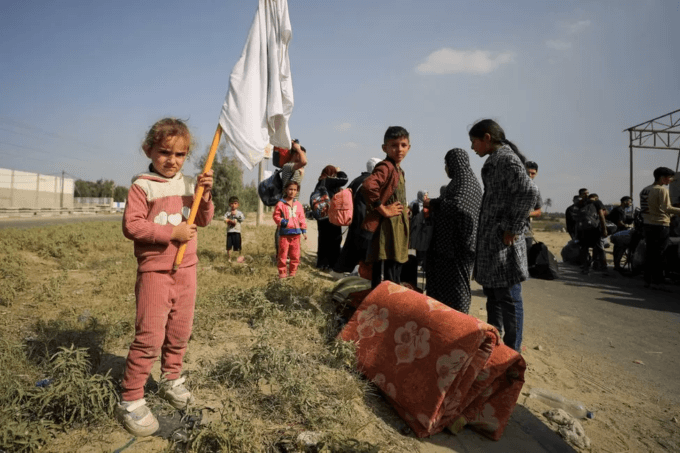Application Deadline:
19th January, 2024 by 11:59pm Eastern Daylight Time.
Offered Annually? Yes
Eligible Countries: Over 80 women’s human rights advocates from Botswana, Cameroon, Ethiopia, Ghana, Kenya, Liberia, Malawi, Namibia, Nigeria, Sierra Leone, South Africa, Swaziland, Tanzania, Uganda and Zimbabwe have participated in the LAWA Program, and we hope to include Fellows from additional countries in the future.
To be Taken at (Country): Georgetown University Law Center in Washington, D.C., USA
About the Award: The Leadership and Advocacy for Women in Africa (LAWA) Fellowship Program was founded in 1993 at the Georgetown University Law Center in Washington, D.C., in order to train women’s human rights lawyers from Africa who are committed to returning home to their countries in order to advance the status of women and girls in their own countries throughout their careers.
Type: Fellowship, Masters
Eligibility: You are strongly encouraged to carefully read and comply with every requirement of the application, as incomplete or incorrect applications will not be considered. Please also note that AAUW requires you to submit a TOEFEL score.
- You must be a women’s human rights lawyer from Africa in order to be considered. You must hold an LL.B. or other law degree. A preference is given to candidates who:
a. are currently living and working in Africa, and
b. do not already have a Masters’ Degree.
- The strongest applicants tend to be about five to ten years out of law school, but those with less or more experience will be considered. Candidates with no work experience who are applying directly from an LL.B. degree or other law school will not be considered.
- Men and women who are committed to women’s rights are strongly encouraged to apply.
- As a requirement of participation in the LAWA Program, all applicants must commit to return home to their own countries upon completion of the Fellowship, and to use their best professional efforts to advance women’s human rights throughout their careers.
- You must have strong English language skills, both written and oral. Language problems have been the primary barrier to success for LAWA Fellows.
- The LAWA Program requires candidates to become proficient in using computers for drafting papers and conducting research. Candidates are strongly encouraged to learn basic computer skills before arrival in order to make this transition easier. At the very minimum, candidates should work to improve their typing speed.
- Candidates must be prepared to enter a very demanding course of study. LAWA Fellows take four required courses and several more elective courses over the course of the two academic semesters. Each class requires advance preparation of reading hundreds of pages. Fellows are required to produce a Masters’ Thesis totaling no fewer than 40 pages, including several drafts with intense research, writing and editing. Successful completion of the program requires exceptional focus, and very hard work. Please do not apply if you are not prepared to make this serious academic commitment.
Value of Fellowship: The LAWA Program helps defray the costs for candidates who would not otherwise be able to afford an LL.M. degree and additional professional development training. The LAWA Fellowship provides the tuition for the mandatory Foundations of American Law and Legal Education course held from mid-July to mid-August (a U.S. $5,000 benefit) and for the Master of Laws (LL.M.) degree from the Georgetown University Law Center (a U.S. $66,872 benefit).
Candidates who are awarded a LAWA Fellowship must be prepared to cover the costs of all additional expenses (such as visas, travel, housing, utilities, food, clothing, and health insurance, etc.). Candidates must be able to demonstrate to the U.S. Embassy for visa purposes that they have the full amount of funds available to cover these expenses at the time of their visa application. This totals U.S. $30,000. Please refer to this sample budget. These costs are significantly less for those that can reside with family in the Washington, DC area. Candidates still must show at least $8,000 for living expenses. For the summer internship portion, students need to show $2,232 per month, for the 2 to 3 month internship period.
Candidates are encouraged to apply for individual funding, or seek support from their employers. The LAWA Program does not have the capacity to assist with these efforts. There is a fellowship available from AAUW in the amount of $18,000. The application can be found here http://www.aauw.org/what-we-do/educational-funding-and-awards/international-fellowships/if-application/.
Duration of Fellowship: The entire LAWA Fellowship Program is approximately 14 months long (from July of the first year through August of the following year), after which the LAWA Fellows return home to continue advocating for women’s rights in their own countries. The LAWA Program starts in July, when the Fellows attend the Georgetown Law Center’s Foundations of American Law and Legal Education course. From August through May, the LAWA Fellows earn a Master of Laws (LL.M.) degree at Georgetown with an emphasis on international women’s human rights and complete a major graduate paper on a significant women’s rights issue in their home countries. After graduation, the LAWA Fellows then have an opportunity to engage in challenging work assignments for several months at various public interest organizations to learn about different advocacy strategies to advance women’s human rights, before returning home to continue advancing women’s human rights in their own countries.
Upon completion of their Program, LAWA Alumnae have returned home to assume prominent leadership positions enabling them to focus on women’s rights issues in non-governmental organizations, government agencies, law schools, courts, legislatures, and private firms.
More Fellowship Guideline: LAWA Alumnae have formed their own non-governmental organizations, such as the Women’s Legal Assistance Center in Tanzania and Legal Advocacy for Women in Uganda (LAW-Uganda) to promote women’s human rights in their countries (e.g., by bringing impact litigation under their countries’ statutes, constitutions, and the human rights treaties that their countries have ratified).
How to Apply: The 2024-2025 application is available here, LAWA Application 2024-2025 updated, and due on Friday, January 19, 2024.
